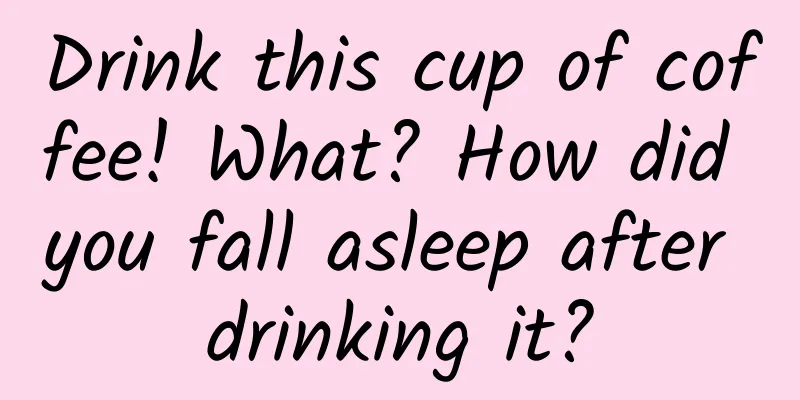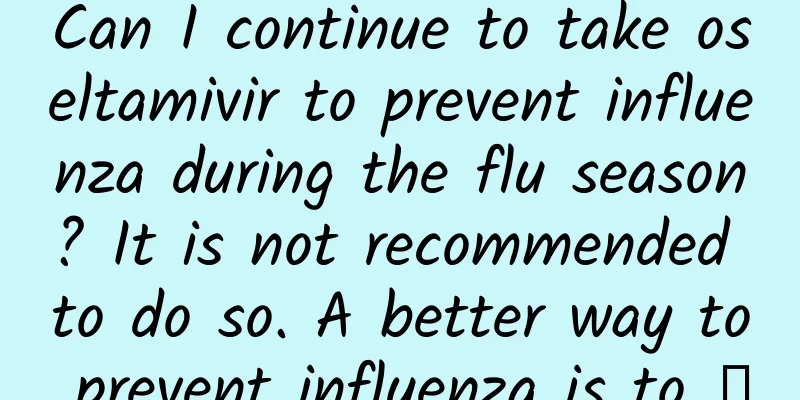Drink this cup of coffee! What? How did you fall asleep after drinking it?

|
"I have to finish my manuscript tonight, let me buy a cup of coffee first" "I'm so sleepy this morning, let me buy a cup of coffee to wake myself up" "Coffee? No, no, or I won't be able to sleep tonight." Coffee that makes people love and hate it (Photo source: Internet) Such similar words should be very common during exam weeks, deadlines, overtime work, etc., and are also common among office workers who are bleary-eyed every morning. However, we have found that there are always some people around us who have no effect at all after drinking coffee, while some people can drink coffee and have an effect all day, or even insomnia until dawn. Why is this so? Why can coffee make many of us feel more energetic? Let's discuss these questions today. Many of us know that the substance in coffee that can refresh us is caffeine. Caffeine is actually found in many different drinks or foods, such as coffee, tea, Red Bull, chocolate, and so on. Caffeine contained in various drinks (Image source: Internet, for reference only) To solve our problem, we still need to figure out the principle and mechanism of this substance. So how does caffeine work? In your nerves, there is something called adenosine, which is present in very low amounts when you are awake. As you stay awake, adenosine is continuously produced and accumulated, activating the corresponding adenosine receptors, and that's when you're ready to go to sleep. But caffeine is an antagonist. Simply put, it will compete with adenosine and occupy the adenosine receptors, then you may continue to stay awake. Antagonism of stimulants (caffeine is actually a stimulant). The blue-green balls can be seen as adenosine, the red as caffeine, and the yellow as receptors (Image source: Internet) To put it in a more vivid way, it is like when you are about to turn off the lights and go to bed, a naughty child blocks the switch and refuses to let you sleep; or to put it more vividly, caffeine is the so-called "occupying the toilet but not taking a shit". By the way, in addition to this, caffeine will indirectly change the activity of dopamine in the striatum of the brain and promote the release of dopamine. The happiness that dopamine brings you will make you continue to drink coffee, which is why coffee is actually regarded as an addictive drug in many cases. The brain's reward system (Image source: Internet) Of course, caffeine will not always occupy such an important position as adenosine. After a certain period of time, you will still feel sleepy. Caffeine will circulate in the blood and enter the liver, which is specialized in processing various miscellaneous substances. The enzymes in the liver break down caffeine into paraxanthine (which promotes the decomposition of fat in the blood), theobromine (also the main alkaloid of chocolate), and theophylline. These substances are further metabolized and eventually excreted through urine. Substances produced by caffeine metabolism and their corresponding contents (Source: Wikipedia) Based on these mechanisms, we can understand a lot when we think about the different effects of coffee on different people: First, the effect of caffeine is related to adenosine and adenosine receptors. Some people may have different receptor affinities for adenosine, so the effect of caffeine may also be different. Another thing is the metabolism of caffeine. The faster it breaks down, the weaker the effect of caffeine. The speed of metabolism is closely related to the enzymes in the liver, and is also related to a person's age, body shape, liver function or pregnancy. For example, it usually takes 3-4 hours for a normal person to break down caffeine, but for infants and young children, since their detoxification ability is not sufficient, it may take more than ten hours; due to the body load of pregnant women, it often takes more than 9 hours; for people with liver disease, this time may increase to more than 90 hours. By the way, there are news reports online saying that dogs can die after drinking coffee, and people are advised not to drink coffee. This is because dogs are far less efficient than humans in metabolizing caffeine, especially theobromine produced by caffeine (so chocolate is not good either), so they are easily poisoned. Such operations are recommended to be cautious (Source: Depositphotos) In addition, the amount of coffee you drink and the type of coffee you drink will have a great impact. In the metabolic pathway of coffee, many gene-regulated enzymes or other substances will have an impact. For example, the CYP1A2 gene expresses an enzyme that can metabolize caffeine; the AHR gene can regulate the CYP1A2 gene, for example, by promoting gene expression through the binding of protein to gene; the ABCG2 gene is related to the nerve response to caffeine... There are many similar genes. Here I hope everyone has a certain understanding of gene regulation: a gene can have multiple functions, and a function is not determined by a single gene alone. The cooperation of multiple genes to perform various functions is also the magic of biology. Many of the popular gene testing products now include the "caffeine tolerance" item. In fact, many of them only detect the difference in a gene locus to determine whether you are caffeine tolerant. Obviously, such a judgment is inaccurate. An example report from a genetic testing company shows that the test for caffeine tolerance actually only tests one locus (Source: wegene) Although various genes can metabolize caffeine very well, as mentioned before, dogs, cats, birds, insects and other creatures will become very toxic after ingesting caffeine due to their low metabolic efficiency. Similarly, excessive caffeine intake can also be toxic to humans. For example, it can increase blood pressure and cause cardiovascular disease, it can cause anxiety and depression, and of course it can also lead to sleep deprivation. Various physiological problems caused by excessive caffeine intake (Source: Wikipedia) The generally recommended caffeine intake is below 400mg, which is equivalent to about two cups of Starbucks large Americano (see the previous picture). I hope everyone can drink in moderation. It is a healthy choice to continue drinking because you feel sleepy after drinking. Source: biokiwi |
<<: Ejection seat, the skyguard of the skyguard
Recommend
New research! Exercise can relieve anxiety and depression! The three most effective ones are these →
There are too many things to do in life and no id...
Qimao Free Reading Novels, can Qimao Free Reading Novels be read automatically?
Qimao Free Novels is a novel reading platform tha...
From "Music Review Special Train" to "Xigua Video Celebrity Ticket", what else can subway advertising do?
It’s been almost a year since the heart-wrenching...
Trump signed an executive order: What does it mean to ban US companies from doing business with Tencent in 45 days?
Trump signed an executive order: What does it mea...
Coffee causes cancer? Don’t panic! This article will help you sort out the love-hate relationship with coffee
Coffee originated in the Kaffa region of Ethiopia...
What do you think about the Qinghai-Tibet Plateau changing from "cold and high" to "wet and warm"?
In May 2023, my country's Mount Everest exped...
Still eating and drinking as you please? Be careful to "pick" out colon cancer...Have you fallen into these eating habits?
Our physical health is closely related to our eat...
Wuwei Academy Wuwei Teacher Main Line Capture Dragon Fourth Episode
Introduction to the fourth issue of Wuwei Academy...
EVCIPA: Operation of electric vehicle charging and swapping infrastructure in January 2025
In January 2025, there were 181,000 more public c...
Su Yinhua's "Thinking Business School·2019 Business Thinking" (140 episodes) video
Su Yinhua's "Thinking Business School · ...
China Automobile Dealers Association: China's luxury car retail market sales in 2020 was 3.46 million units, an increase of 11.4% year-on-year
In 2020 , calculated from the statistical dimensi...
Soul product analysis report!
Socializing with acquaintances is the basis of ou...
The 8th session of Youlianhui TikTok Overseas Gold Mining Training Camp, Teacher Xiaobei is in charge of the practical courses that are upgraded again
The 8th session of Youlianhui TikTok Overseas Gol...
Fall in love with emotions "Let's take a lesson (analysis of wrong chatting and girls' chatting psychology)"
Fall in love with emotions "Chatting as a wa...









